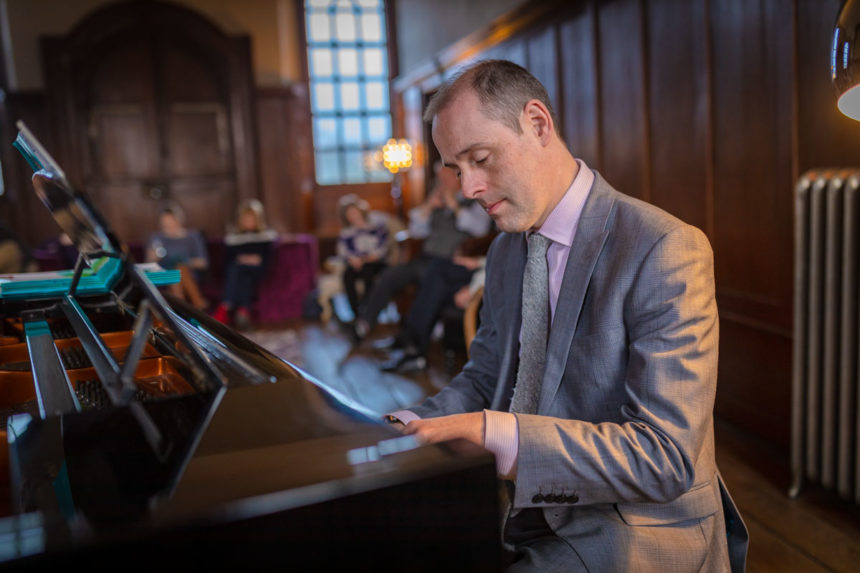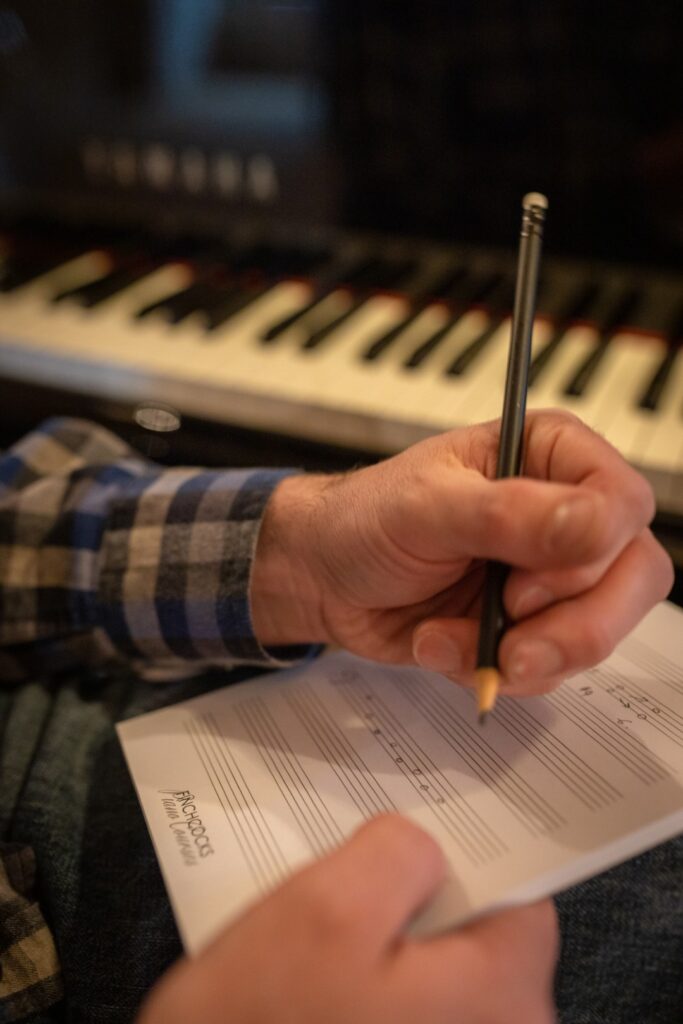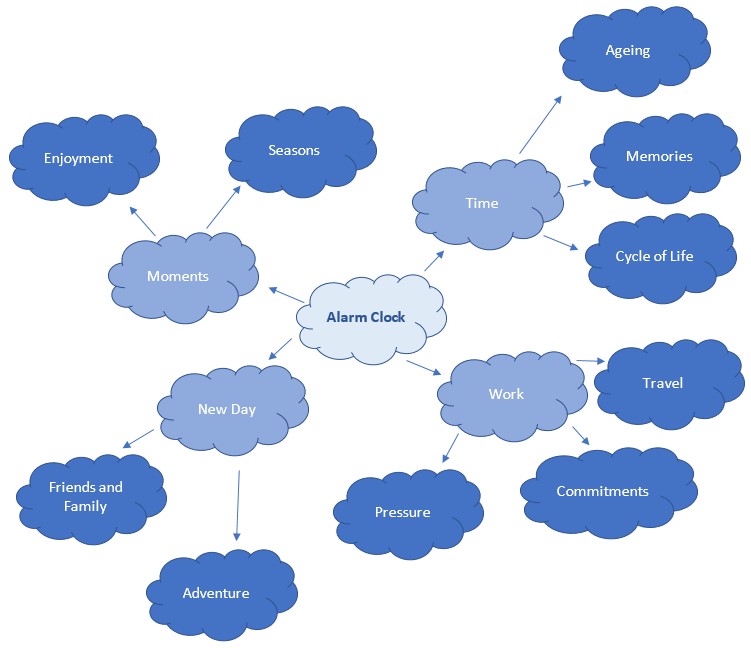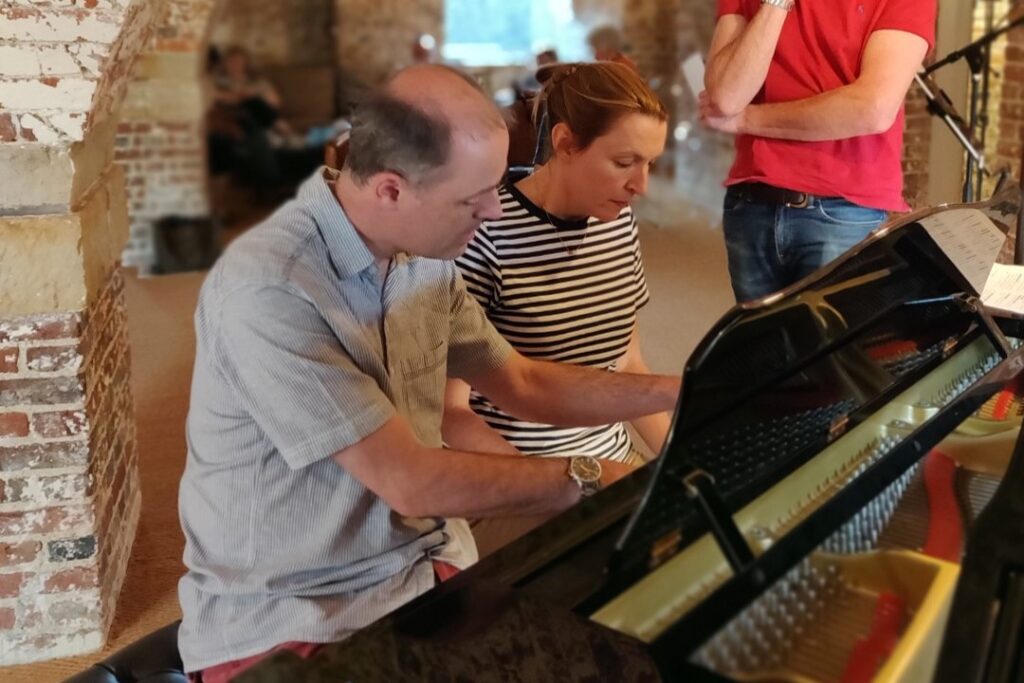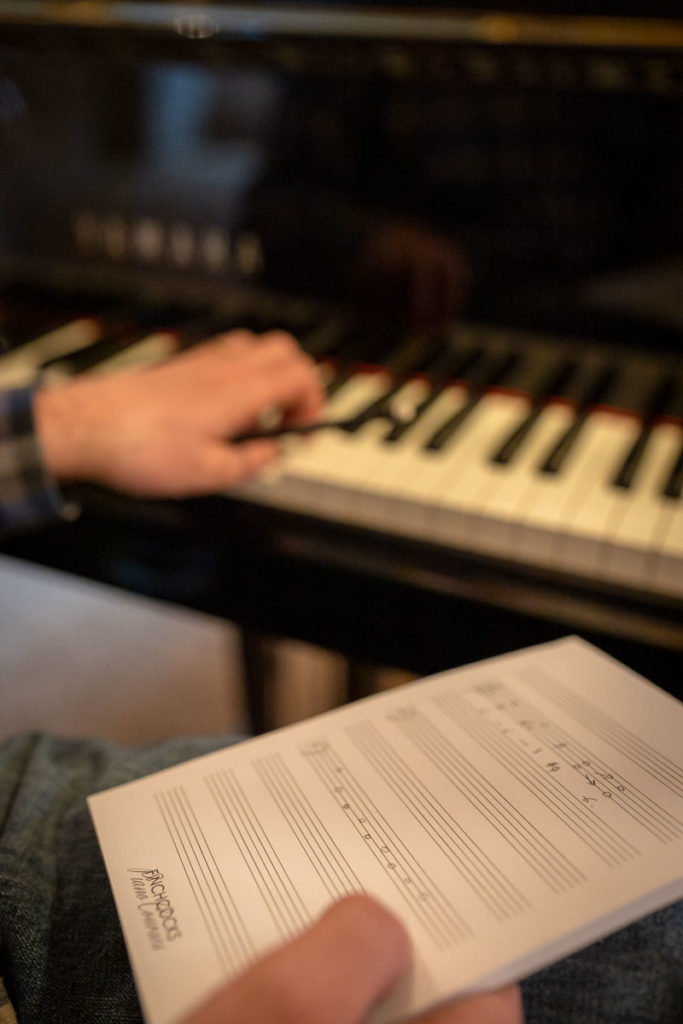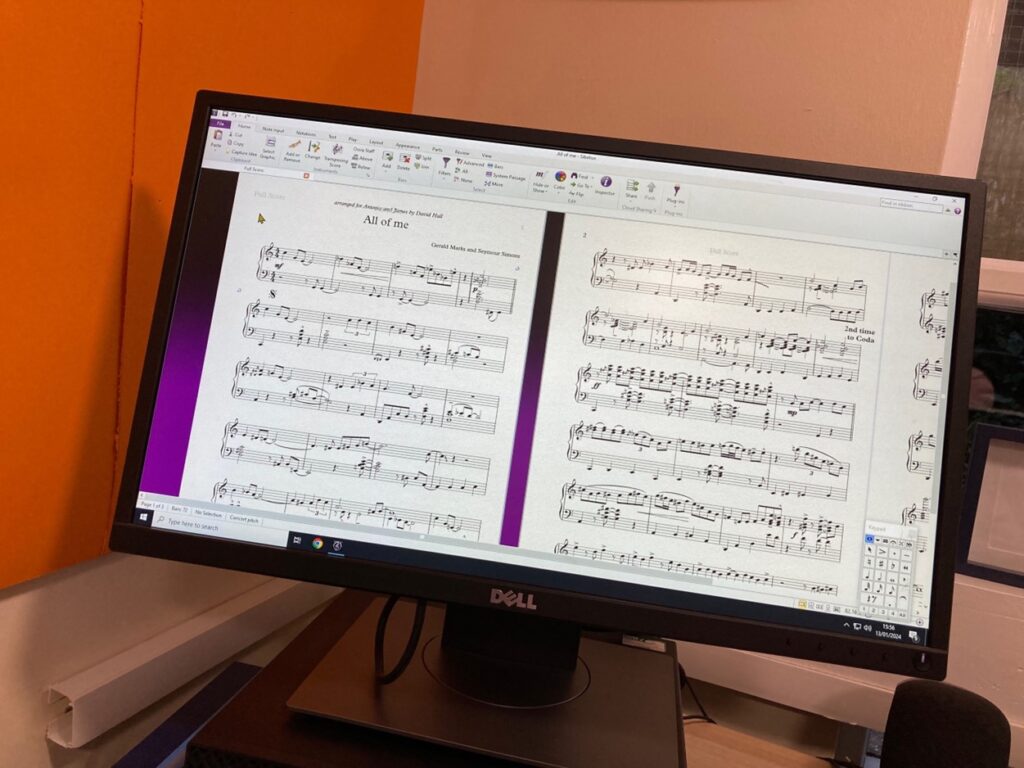Award-winning composer, multi-instrumentalist and popular Finchcocks tutor, David Hall, gives us some insight on composition…
Initial Ideas
Here’s a fun activity. Take an everyday object – say, an alarm clock, a pen, a boat or a book – then give yourself 10 minutes to come up with as many associations as you can. Put all your thoughts into a cloud diagram like mine.
My first four thoughts were “Time”, “Moments”, “New Day” and “Work”. These thoughts led quickly to other thoughts which led to other thoughts. In just 10 minutes, there are four piano pieces emerging in my mind and each already has a different tempo, instrumentation and mood.
Moments will be a playful piece with falling snowflakes and laughter. I think it’s in E flat major with both hands in the treble clef. There is plenty of staccato and the melody is shared between the two hands. It might be a little like Schumann’s Kinderscenen.
Time is a slow march in C minor or A flat major. It has a warm lyrical middle section with a rich, contrapuntal texture. I’d like to think I could write something in the style of Brahms.
New Day is in C major, or maybe D. It’s a rollicking number in 6/8 or maybe 12/8.
Work is full of honking and repetitive rhythms, a bit like Gershwin’s Rhapsody in Blue.
There is a classic image of the composer walking through the woods or by the sea in the morning, seeking inspiration. Then he sits at his desk, with his quill, allowing the music to spill on to the page. In reality, composers, now and in the past, are/were most often inspired by everyday objects and deadlines!
Developing Ideas
How are you feeling now? If you are buzzing with ideas, then head to the piano and write some music. If you are feeling stuck, then take a break and let your subconscious mind take over for a while. Have you ever noticed how crossword answers sometimes just come to you after a day or two? It’s the same with puzzling things out in music.
If you are writing a song, don’t get bogged down with rhyme. I wrote a song last year called “The Haunted House”. The lyrics for the chorus are:
The haunted house, ooo-ooh…
The haunted house, ooo-ooh…
The haunted house, ooo-ooh…
The haunted house is always on your mind.
It’s not a great work of art, but it’s an effective chorus for a kids’ show song. There’s no rhyme at all!
Technique
It’s lovely to compose music for a specific purpose, or person, with a specific idea in mind. But, just as with many other things in life, the ability to compose arises from study and practice. Before embarking on full-blown composition projects, it is important to learn the traditional rules of harmony and counterpoint and to immerse yourself in the rhythms, melodies and styles of your favourite musicians.
Here are some really effective little mini-projects for budding composers:
- Hum a short melody and then play it on the piano – first time, no mistakes!
- Compose a tiny fragment of melody – perhaps 5 or 6 notes. Create a longer melody by transposing and developing this motif.
- Using only chords, I, IV and V, harmonise some folk tunes.
- Using only chords I, IV and V, and their inversions, devise some 4-bar phrases that culminate in imperfect cadences and perfect cadences.
- Sight-read the first four bars of a piano piece. Then close the book and improvise a continuation.
- Improvise some two-part counterpoint. Make sure the interval between your two hands is always a 3rd or a 6th – you can’t go wrong!
- Analyse the repertoire that you are currently learning. Work out all the chords and look at how the composer develops motifs.
- Improvise a short piece – don’t worry if it’s not great – then write it down.
- Write a piece away from the piano, try to hear it in your mind, then take it to the piano to check.
And some A-level/university-level projects that you probably shouldn’t try unless you have a teacher guiding you:
- Harmonise a chorale (hymn) melody in the style of JS Bach.
- Harmonise one of Schubert’s songs.
- Take a look at Fux’s Gradus ad Parnassum.
- Write a fugue in the baroque style.
Composition as a Gift
Stuck for ideas for birthdays, anniversaries or Christmas?
David Hall is offering to do the creative work for you and the opportunity for you to commission original compositions as gifts. Your loved ones may enjoy a solo piano piece, a song based on a favourite poem, or perhaps a piece for violin and piano to play together.
Maybe you would like to buy a special present for your piano teacher who has helped you to pass Grade 8. Maybe you are looking for an unusual gift for a retiring colleague.
Your composition will be beautifully typeset using Sibelius software and then printed on high quality paper.
Your composition will then be elegantly wrapped and delivered to your door.
The price will depend on the duration, instrumentation and complexity of the request. As a guide, a solo piano piece of Grade 4 or 5 standard would be £150 per minute. If you are interested in this idea, please get in touch with us, allowing a lead time of at least six months.

